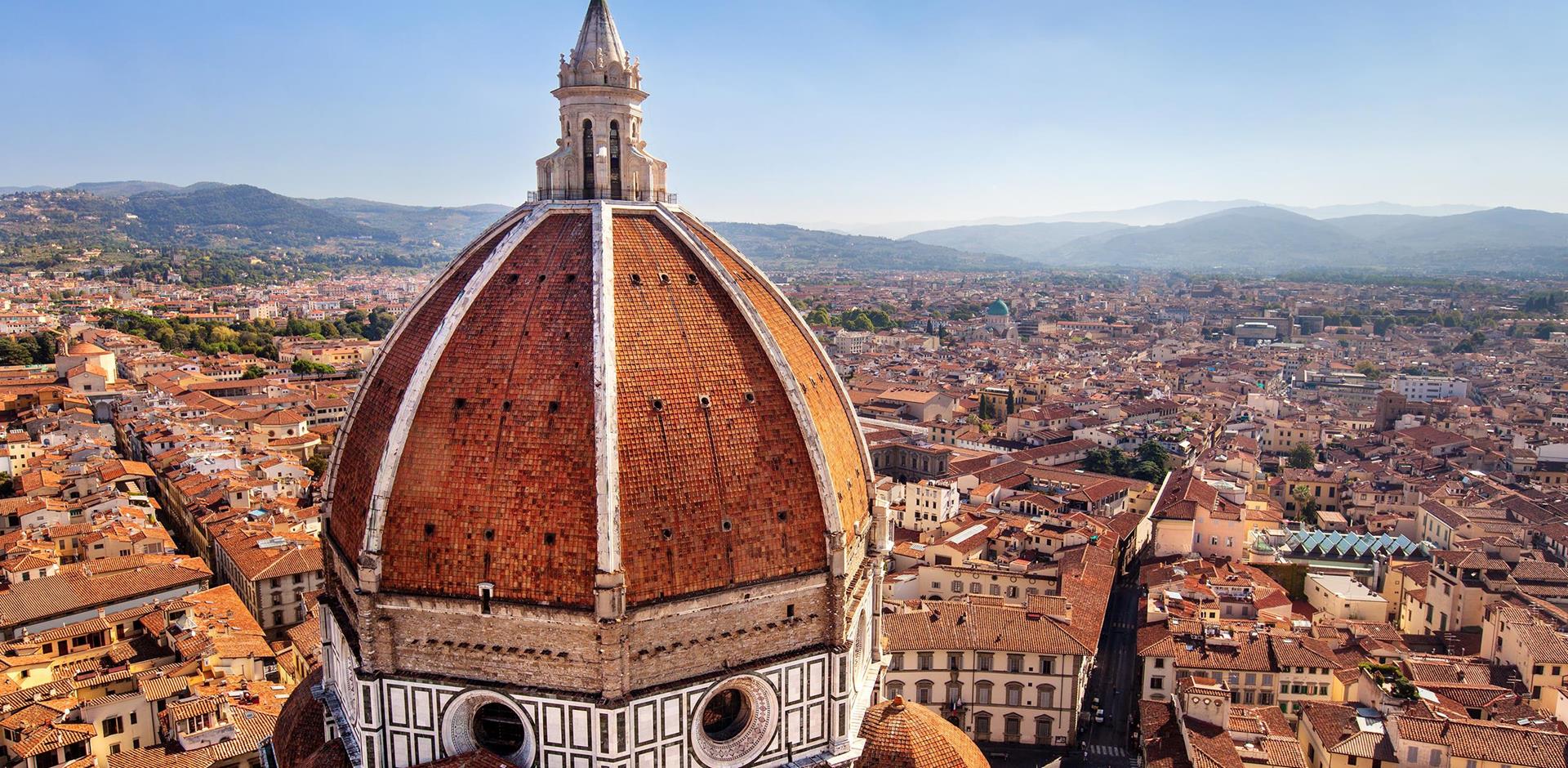About Italy
Italy’s rolling hills, cypress tree-lined avenues and dramatic coastlines have enchanted visitors for centuries. In keeping with its captivating sense of allure, our luxury villas in Italy offer a taste of luxury with a smattering of everything that you love about this sun-kissed nation. Discover its fine wines, its delectable dining and those endless miles of pristine countryside..
One of Italy’s most famous cities is the Renaissance capital, Florence. Hidden among its terracotta domes and ancient bell towers, Florence is home to any number of masterpieces, from Michelangelo’s David to Botticelli’s Venus. It’s also renowned for its jewellery shops, making this the perfect place to pick up an elegant trinket for yourself or a loved one.
In the rolling hills of Tuscany you’ll find the famous wine estates of Brolio and Antinori. Each cultivates some of the most revered vintages in the Chianti Classico selection. Close by, Umbria offers remote retreats surrounded by a wealth of medieval settlements.
Undoubtedly the most glamorous region in Italy, though, is the Amalfi Coast. Lie on white-sand beaches and tuck into the most delectable seafood you’ll ever taste. With our range of villas catering to all flavours, before you know it you’ll be strolling back to your villa, gelato in hand, for an evening under the romantic Italian stars.
Time Zone
GMT +1hr
Language
Italian
Currency Information
The Euro (€) is the official currency of Italy. Coins are available in 1 cent, 2 cent, 5 cent, 10 cent, 20 cent, 50, cent , €1 & €2 denominations. Notes are available in €5, €10, €20, €50, €100, €200, €500 denominations.
Money Matters
Travellers cheques are widely accepted for exchange or purchase in major cities, but in more rural areas, visit a bank to exchange them for Euros. Major credit cards are widely accepted here (though a limited number of merchants have American Express accounts) and ATM access is widespread. Exchange currency only at authorized outlets such as banks and hotels, and exchange only what you think you will spend in-country. Coins cannot be reconverted on departure. Save all receipts from any currency exchange transaction. You may be asked to produce them when you exit the country, and they are required if you intend to reconvert local currency.
Tipping Suggestions
You are not expected to tip on top of restaurant service charges, though leaving a small amount is common practice. If there is no service charge, you might consider leaving 10%/15%, but it is not obligatory. In bars any small change is left as a tip. Tipping taxi drivers is also not mandatory but suggested.
Arrival & Departure Formalities
Travel documents are your responsibility. In general you should have:
A signed, valid passport that will remain valid for at least 6 months beyond the completion of your trip. Your passport must have enough blank pages (excluding amendment pages) available for entry and exit stamps issued when entering and exiting immigration points.
Visas are required for certain nationalities and you are strongly advised to check your status allowing plenty of time for visa application.
Driving/parking Information
There are some important rules of the road:
- Traffic drives on the RIGHT.
- At crossroads drivers coming from the right have priority excluding crossroads with traffic signs/lights.
- You should always be carrying in the car your driver’s license accompanied by the International Driving Permit, the car insurance papers and ownership (rental) papers.
- The minimum driving age is 18.
- It is compulsory for the driver and front-seat passengers to wear seat belts, and seat belts must be worn in the back where they are fitted. Children under 12 must travel in the back seats, unless the front seat is fitted with a child restraint system.
- Headlights must be on all the time except if driving in a city during the day with good visibility.
- In the event of a breakdown a red warning triangle must be displayed in the road.
- National speed limit is 50kmh (31mph) in towns, 90kmh (56mph) on secondary non-urban highways, 110kmh (68mph) on dual carriageways, 130kmh (80mph) on motorways. Speeding fines: Euros 30 – 300.
- For use of the highways it is invariably necessary to collect a ticket at toll booth marked “biglietti” before entering the highway. DO NOT pass under the lanes marked Telepass. Pay the toll at the exit. Payment can be made by coins or by credit card.
- There are strict laws concerning drinking and driving. Blood alcohol levels must not exceed 0.05%.There are random breathalyser tests carried out regularly by the police.
Parking
In many large towns, the historical town centre is subject to traffic restrictions (authorised vehicles only may enter) indicated by large white sign with a red circle saying “Zona a traffico limitato”.Street parking is organized and designated with signs and by the colour of the lines for the parking spots. The colour of the lines on the parking space indicates the type of parking; white is for free parking, blue is for paid parking, yellow is reserved for special use.
Signs will tell you if you are required to pay or to use a parking disc to time your parking (more details below). In most regions, blue lines mark paid street parking. There will be a payment machine nearby. Place the receipt from the machine on the dashboard.
In many towns, white lines mark free parking spots on the street but they may be limited by time. The closest parking sign will tell you if you must set your parking disc to show when you arrived. Set your parking disc to the time you parked and display it in the window. You must return within the maximum allowed time.

